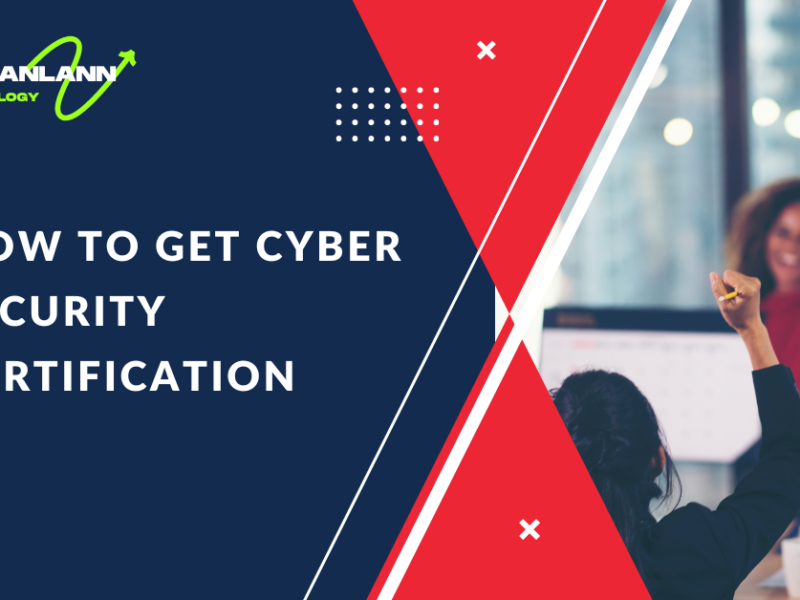In today’s increasingly digital world, cybersecurity has emerged as one of the most critical fields, protecting sensitive information from cyber threats. For beginners looking to enter this dynamic and rapidly evolving sector, the first step is to acquire foundational knowledge through a cybersecurity training program. These programs are designed to equip learners with the skills needed to understand, identify, and mitigate cyber threats.

Whether you’re an aspiring IT professional or someone looking to switch careers, cybersecurity training is essential. It not only helps you gain the necessary technical skills but also prepares you for industry-recognized certifications that are crucial for career advancement. This guide explores the best cybersecurity training programs for beginners, offering a comprehensive overview of each to help you make an informed decision.
Understanding the Basics of Cyber Security
Before diving into specific training programs, it’s important to understand what cybersecurity entails. Cybersecurity is the practice of protecting systems, networks, and data from digital attacks. These attacks can be in the form of hacking, malware, phishing, and more. The goal of cybersecurity is to ensure the confidentiality, integrity, and availability of information.
For beginners, grasping the basics of cybersecurity is crucial. Key concepts include understanding types of cyber threats, the role of firewalls, encryption, and the importance of secure coding practices. A solid foundation in these areas will prepare you for more advanced topics as you progress in your training.
Types of Cyber Security Training Programs
Cybersecurity training programs come in various formats, each catering to different learning styles and schedules. The most common types are:
- Online vs. In-Person Training: Online programs offer flexibility and convenience, allowing you to learn at your own pace from anywhere. In-person training, on the other hand, provides a structured environment with face-to-face interactions.
- Self-Paced vs. Instructor-Led Courses: Self-paced courses allow you to learn at your own speed, making them ideal for those with busy schedules. Instructor-led courses offer guidance and support, which can be beneficial for beginners who need more structured learning.
- Certification Programs: These programs are designed to prepare you for industry-recognized certifications, which can significantly boost your employability and credibility in the cybersecurity field.
How to Choose the Right Cyber Security Training Program
Selecting the right cybersecurity training program is a crucial step in your learning journey. Here are some factors to consider:
- Cost: Training programs can range from free to several thousand dollars. Determine your budget and explore options that fit within it.
- Duration: Some programs can be completed in a few weeks, while others may take several months. Consider how much time you can dedicate to your studies.
- Learning Style: Choose a program that matches your learning style. If you prefer hands-on learning, look for programs with practical labs. If you prefer guided instruction, consider instructor-led courses.
- Certification Relevance: Ensure the program prepares you for a certification that is recognized and valued in the cybersecurity industry.
Importance of Certifications in Cyber Security
Certifications play a pivotal role in the cybersecurity industry. They validate your skills and knowledge, making you a more attractive candidate to potential employers. For beginners, obtaining a certification can open doors to entry-level positions and provide a clear path for career advancement.
Some of the most recognized certifications in cybersecurity include CompTIA Security+, CISSP, CEH, and more. These certifications not only enhance your resume but also demonstrate your commitment to the field.
Introduction to CompTIA Security+
CompTIA Security+ is one of the most popular cybersecurity certifications for beginners. It covers a broad range of topics, including network security, threat management, cryptography, and more. This certification is often the first step for those new to cybersecurity, as it provides a strong foundation and is widely recognized by employers.
Course Content
The CompTIA Security+ course typically covers:
- Network Security Fundamentals
- Cryptography and Encryption
- Threats and Vulnerabilities
- Identity and Access Management
- Security Policies and Regulations
Why It’s Recommended for Beginners
Security+ is ideal for beginners because it doesn’t require prior experience in cybersecurity. It provides a comprehensive introduction to the field, preparing you for entry-level roles such as Security Administrator or IT Support Specialist.
Certification Details
To earn the CompTIA Security+ certification, you must pass a multiple-choice exam that tests your knowledge of various cybersecurity topics. Once certified, you’ll have a credential that is respected in the industry and can significantly boost your career prospects.
Introduction to Certified Information Systems Security Professional (CISSP)
While CISSP is often viewed as a more advanced certification, it’s still worth mentioning for beginners who are planning their long-term career path in cybersecurity. CISSP is designed for security professionals who are looking to validate their expertise in designing, implementing, and managing a cybersecurity program.
Key Learning Objectives
CISSP covers a wide range of cybersecurity topics, including:
- Security and Risk Management
- Asset Security
- Security Engineering
- Communication and Network Security
- Identity and Access Management
How It Benefits Beginners
For beginners, CISSP may seem daunting, but it sets the stage for advanced roles in cybersecurity. Starting with CISSP early in your career can position you for rapid advancement and leadership roles in the future.
Certification Details
The CISSP certification requires passing a rigorous exam that tests your knowledge across multiple domains of cybersecurity. While it’s not typically recommended as the first certification for beginners, it’s a valuable credential to aim for as you gain experience.
Introduction to Certified Ethical Hacker (CEH)
The Certified Ethical Hacker (CEH) certification is designed for those interested in the offensive side of cybersecurity—ethical hacking. CEH teaches you how to think and act like a hacker, but with the goal of protecting networks and systems from attacks.
Course Content
The CEH course includes:
- Introduction to Ethical Hacking
- Footprinting and Reconnaissance
- Scanning Networks
- Vulnerability Analysis
- System Hacking
- Social Engineering
- Cryptography
Ethical Hacking Fundamentals
Ethical hacking involves legally probing and testing systems to find vulnerabilities before malicious hackers can exploit them. CEH provides the tools and techniques used by ethical hackers to safeguard networks.
Certification Details
The CEH certification is obtained by passing an exam that tests your knowledge of hacking techniques, tools, and methodologies. It’s ideal for those who are interested in penetration testing, network security, and other offensive security roles.
Introduction to Cisco Certified CyberOps Associate
Cisco Certified CyberOps Associate is another excellent choice for beginners. This certification focuses on cybersecurity operations and is designed to prepare you for roles in security operations centers (SOCs).
Course Structure
The CyberOps Associate course covers:
- Security Monitoring
- Incident Response
- Network Intrusion Analysis
- Security Operations
- Threat Intelligence
Skills Learned
Through this certification, you’ll gain skills in monitoring, detecting, and responding to cybersecurity threats. It’s particularly valuable for those looking to enter SOCs or work in cybersecurity operations.
Certification Benefits
Cisco’s certification is recognized worldwide, and obtaining it can significantly enhance your employability in cybersecurity operations roles. The exam tests your ability to perform tasks related to security operations, making it a practical certification for beginners.
Introduction to GIAC Security Essentials (GSEC)
The GIAC Security Essentials (GSEC) certification is designed for professionals who want to demonstrate they have hands-on skills in cybersecurity. It’s a well-rounded certification that covers both theoretical knowledge and practical skills.
Key Topics Covered
GSEC includes topics such as:
- Networking Fundamentals
- Cryptography
- Incident Handling
- Penetration Testing
- Security Policies and Procedures
Certification Importance for Beginners
GSEC is an excellent choice for beginners because it focuses on practical skills that are directly applicable in the workplace. It’s ideal for those who want to demonstrate their ability to implement security measures in real-world scenarios.
Certification Details
To earn the GSEC certification, you must pass an exam that includes both multiple-choice questions and practical, hands-on challenges. This certification is highly regarded in the industry and is a great way to start your cybersecurity career.
Introduction to Microsoft Certified: Security, Compliance, and Identity Fundamentals
Microsoft’s Security, Compliance, and Identity Fundamentals certification is designed to provide a broad understanding of security, compliance, and identity concepts within the Microsoft ecosystem.
Microsoft Certification Focus
This certification covers key areas such as:
- Security Principles
- Compliance Frameworks
- Identity and Access Management
- Microsoft Security Solutions
Relevance for Beginners
This certification is particularly relevant for those who work in or plan to work in environments that use Microsoft products and services. It provides a solid foundation in security and compliance within the Microsoft ecosystem.
Certification Details
The certification exam tests your understanding of security, compliance, and identity concepts, making it a great starting point for those new to cybersecurity or those who want to specialize in Microsoft technologies.
Introduction to Google IT Support Professional Certificate
While not strictly a cybersecurity certification, the Google IT Support Professional Certificate provides a strong foundation in IT support, which is a critical component of cybersecurity.
Course Structure
The Google IT Support Professional Certificate includes:
- Networking Basics
- System Administration
- Security Fundamentals
- Troubleshooting
- Customer Service Skills
Google Certification Benefits
This certification is ideal for beginners who want to enter the IT field with a strong understanding of both support and security fundamentals. It’s a flexible, online program that you can complete at your own pace.
Relevance for Cybersecurity Beginners
For those new to IT and cybersecurity, this certification provides a comprehensive introduction to the field. It’s particularly valuable for those interested in IT support roles with a focus on security.
Introduction to Certified Information Security Manager (CISM)
The Certified Information Security Manager (CISM) certification is designed for those who want to focus on the management side of cybersecurity. While it’s more advanced, it’s a great goal for beginners who are interested in security management.
Course Content
CISM covers:
- Information Security Governance
- Risk Management
- Information Security Program Development
- Incident Management
Managerial Focus
CISM is ideal for those who aspire to leadership roles in cybersecurity. It teaches you how to manage and govern a company’s information security program, making it a valuable certification for long-term career growth.
Certification Relevance
While CISM is more advanced, it’s worth considering if you plan to pursue a career in cybersecurity management. The certification is recognized globally and is highly respected in the industry.
Free Cyber Security Training Programs for Beginners
For those on a budget or looking to explore cybersecurity without a significant financial commitment, several free training programs are available:
- Cybrary: Offers a wide range of free cybersecurity courses covering various topics and skill levels.
- Open Security Training: Provides free, high-quality courses on topics such as network security, binary analysis, and more.
- SANS Cyber Aces: A free program that introduces beginners to the fundamentals of cybersecurity, including networking, operating systems, and system administration.
These free resources are excellent starting points for beginners and can provide valuable insights into the world of cybersecurity without the need for a significant investment.
Cyber Security Bootcamps: An Intensive Learning Experience
Cybersecurity bootcamps are intensive, short-term training programs designed to equip you with the skills needed to enter the cybersecurity field quickly. These bootcamps are typically immersive and require a significant time commitment, but they offer fast-tracked learning.
What is a Bootcamp?
A bootcamp is a condensed training program that focuses on practical skills and hands-on experience. Bootcamps often simulate real-world scenarios, providing you with the opportunity to apply what you learn in a controlled environment.
Best Bootcamps for Beginners
Some of the top cybersecurity bootcamps for beginners include:
- Springboard Cyber Security Bootcamp
- Flatiron School Cybersecurity Analytics Bootcamp
- General Assembly Cybersecurity Bootcamp
Intensity and Outcomes
Bootcamps are intense and fast-paced, often lasting several weeks to a few months. Upon completion, you’ll have a solid foundation in cybersecurity and the practical skills needed to start working in the field immediately.
University-Based Cyber Security Programs
For those looking for a more traditional education path, many universities offer cybersecurity programs that provide both theoretical knowledge and practical skills. These programs are often part of a degree, such as a Bachelor’s or Master’s in Cybersecurity, and can offer a more in-depth exploration of the field.
Overview of Top Universities Offering Cyber Security Training
Some top universities that offer cybersecurity programs include:
- Stanford University
- Massachusetts Institute of Technology (MIT)
- Carnegie Mellon University
Program Structure
University-based programs typically include a mix of lectures, labs, and research projects. They offer a more comprehensive education, often covering advanced topics such as cryptography, cyber law, and advanced threat detection.
Degree vs. Certification
A degree in cybersecurity offers a more thorough and well-rounded education compared to certification programs. However, it also requires a larger time and financial investment. Certifications, on the other hand, are quicker to obtain and more focused on specific skills.
Importance of Hands-On Labs in Cyber Security Training
Hands-on labs are a critical component of effective cybersecurity training. They allow you to apply theoretical knowledge in practical scenarios, helping you to develop the skills needed to respond to real-world cyber threats.
Benefits of Practical Experience
Practical experience is invaluable in cybersecurity. It enables you to understand how different tools and techniques work in real-world situations, and it prepares you to handle the types of challenges you’ll face on the job.
Online Labs and Simulations
Many training programs offer online labs and simulations where you can practice skills such as network defense, ethical hacking, and incident response. These labs are often set up as virtual environments, allowing you to experiment and learn without the risk of causing real damage.
Why Hands-On Learning is Crucial
Hands-on learning bridges the gap between theory and practice. It helps you to develop critical thinking and problem-solving skills, which are essential in the fast-paced and ever-evolving field of cybersecurity.
Career Paths After Completing Cyber Security Training
Once you’ve completed your cybersecurity training, a wide range of career opportunities becomes available to you. Entry-level positions are an excellent starting point, with numerous paths for growth and specialization.
Entry-Level Positions
Some common entry-level positions in cybersecurity include:
- Security Analyst
- IT Support Specialist
- Network Administrator
- Penetration Tester
These roles provide valuable experience and a strong foundation for future career advancement.
Career Growth Opportunities
As you gain experience, you can move into more specialized or advanced roles, such as:
- Security Consultant
- Cybersecurity Manager
- Chief Information Security Officer (CISO)
Industry Demand
The demand for cybersecurity professionals continues to grow, with many industries facing a shortage of skilled workers. This high demand makes cybersecurity an excellent field for those seeking job security and career advancement.
Tips for Success in Cyber Security Training
To succeed in your cybersecurity training and career, it’s important to stay motivated and engaged throughout your learning journey. Here are some tips to help you succeed:
- Set Clear Goals: Define what you want to achieve with your training and set milestones to track your progress.
- Stay Organized: Keep your study materials, notes, and resources organized to make it easier to review and study.
- Utilize Online Resources: Take advantage of online forums, study groups, and additional resources to supplement your learning.
- Practice Regularly: Consistently practice your skills through labs, simulations, and exercises to reinforce your knowledge.
- Stay Informed: Keep up with the latest cybersecurity news and trends to stay informed about the industry.
Emerging Trends in Cyber Security Education
Cybersecurity education is constantly evolving to keep up with the latest threats and technologies. Some emerging trends include:
AI and Machine Learning in Training
AI and machine learning are increasingly being integrated into cybersecurity training programs to provide personalized learning experiences and enhance threat detection skills.
Cybersecurity Gamification
Gamification is being used to make cybersecurity training more engaging and interactive. This approach uses game-like elements, such as challenges and leaderboards, to motivate learners.
Future Trends in Learning
Future trends in cybersecurity education may include more immersive experiences, such as virtual reality simulations, as well as increased focus on specialized areas like quantum computing security.
Best Practices for Continuous Learning in Cyber Security
Cybersecurity is a rapidly changing field, making continuous learning essential for staying ahead of new threats and technologies. Here are some best practices for continuous learning:
- Pursue Advanced Certifications: As you gain experience, consider pursuing advanced certifications to deepen your expertise and stay competitive in the job market.
- Attend Conferences and Workshops: Participate in industry conferences, workshops, and webinars to stay informed about the latest trends and network with other professionals.
- Stay Curious: Always be open to learning new skills and exploring new areas of cybersecurity. The more knowledge you gain, the more valuable you become to employers.
FAQs on Cyber Security Training Programs
What is the best cybersecurity certification for beginners?
CompTIA Security+ is often recommended as the best certification for beginners due to its broad coverage of foundational cybersecurity topics.
Are there free cybersecurity training programs available?
Yes, several free cybersecurity training programs are available, including those offered by Cybrary, Open Security Training, and SANS Cyber Aces.
How long does it take to complete a cybersecurity training program?
The duration varies depending on the program, but most certifications can be completed within a few months, while degree programs may take several years.
Do I need a degree to work in cybersecurity?
A degree is not always required to work in cybersecurity, especially if you have relevant certifications and hands-on experience.
What are the benefits of cybersecurity bootcamps?
Bootcamps offer intensive, fast-paced training that equips you with the practical skills needed to enter the cybersecurity field quickly.
How do I stay current with cybersecurity trends?
Continuous learning, attending industry events, pursuing advanced certifications, and following cybersecurity news and blogs are great ways to stay current.
Conclusion
Cybersecurity is a critical and rewarding field with numerous opportunities for growth and specialization. For beginners, choosing the right training program is the first step toward building a successful career. Whether you opt for a certification, bootcamp, or degree program, the key is to stay motivated, keep learning, and continuously hone your skills. With the right training and dedication, you can build a solid foundation in cybersecurity and make a significant impact in protecting the digital world.



Thanks for sharing this article <3
😊😊😊
Thanks
Thanks for Knowledge
မဂ်လာပါ
Hello
Thanks